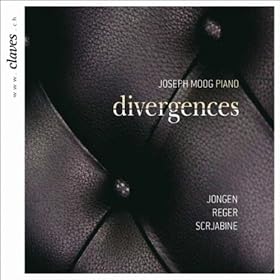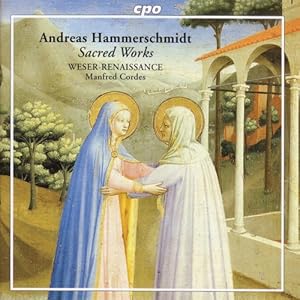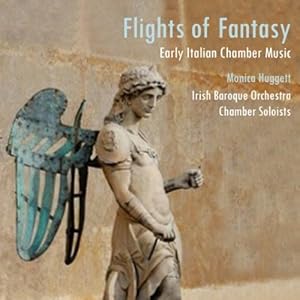 "Divergences" - piano music of Jongen, Reger, Scriabin
"Divergences" - piano music of Jongen, Reger, ScriabinJoseph Moog
[Claves]
File under "Who knew?" Well, obviously I know Scriabin, but I didn't know that the 2nd movement of his Piano sonata no.4 from 1903 was at times alarmingly close to being a jazz number. This disc very nearly slipped under the radar but got some very high praise from some quarters as I was putting the final touches to the NGAs; it almost made it as a runner-up. Joseph Moog by all accounts seems to be a pianist to watch. The link between the three composers here is that they were all born around the same time (1872/73) - but in musical terms they diverged. The Belgian Joseph Jongen comes across as a rhapsodic romantic with hints of Debussy in the 3 pieces here. "Soleil à midi" from his op.33 has an especially memorable theme to it. The German Max Reger is well-known (notorious, you might say) for his love of counterpoint and of course his "smallest room in the house" response to a critic. Träume am Kamin is a quite charming set of miniatures, not what I was expecting as I haven't warmed to Reger in the past. This album was an education, and a good one at that.
 Hammerschmidt: Sacred works
Hammerschmidt: Sacred works
Weser-Renaissance/Manfred Cordes
[CPO]
And what I learned here - or rather, what I learned before I decided to get this - was that Andreas Hammerschmidt was, as Grove puts it, "the most representative composer of mid-17th-century German church music, of which he was a prolific and extremely popular exponent". To me, he was just a name in a list of composers whose anniversary falls this year. Or next year: he was born in either 1611 or 1612. So, if he's Germany's Most Representative, I should listen to him, shouldn't I? Even if, according to Wikipedia, Manfred Bukofzer (never heard of him, either) said Hammerschmidt "watered down the achievements of Schütz for the multitude". Ah, musicologists are a snobby bunch. I like these pieces, 7 from Hammerschmidt's 1649 collection Motettae unius et duarum vocum and 9 from the 1662 set Kirchen und Tafelmuzik. All the latter pieces are in German, as is one of the earlier pieces, the rest being Latin. There's good variety here in the mixing of works and the range of voices employed. So, get this, unless you don't like the idea of watery Schütz.
 "Flights of Fantasy: Early Italian chamber music"
"Flights of Fantasy: Early Italian chamber music"
Monica Huggett; Irish Baroque Orchestra Chamber Soloists
[Avie]
One of those Baroque albums that you know after 15 seconds you're going to enjoy. Full of life and good humour, as I think we are entitled to expect from Monica Huggett. Farina's Capriccio Stravagante is something I haven't heard before, which I now realise from browsing the web makes me a pathetic loser because apparently it's very well known and anyone who knows anything about Baroque music - anything at all - has heard it. Anyway, it's a quarter-of-an-hour piece with various violin effects including animal noises. About 12 minutes in on this recording it goes completely mental, I guess in imitation of yowling cats although the effect strikes me as if the musicians are trying to cope with the score melting before them, notes sliding down staves and onto the floor. Fortunately they recover their poise. And I have heard Biagio Marini's gorgeous Passacaglia before, so there.
 Hammerschmidt: Sacred works
Hammerschmidt: Sacred worksWeser-Renaissance/Manfred Cordes
[CPO]
And what I learned here - or rather, what I learned before I decided to get this - was that Andreas Hammerschmidt was, as Grove puts it, "the most representative composer of mid-17th-century German church music, of which he was a prolific and extremely popular exponent". To me, he was just a name in a list of composers whose anniversary falls this year. Or next year: he was born in either 1611 or 1612. So, if he's Germany's Most Representative, I should listen to him, shouldn't I? Even if, according to Wikipedia, Manfred Bukofzer (never heard of him, either) said Hammerschmidt "watered down the achievements of Schütz for the multitude". Ah, musicologists are a snobby bunch. I like these pieces, 7 from Hammerschmidt's 1649 collection Motettae unius et duarum vocum and 9 from the 1662 set Kirchen und Tafelmuzik. All the latter pieces are in German, as is one of the earlier pieces, the rest being Latin. There's good variety here in the mixing of works and the range of voices employed. So, get this, unless you don't like the idea of watery Schütz.
 "Flights of Fantasy: Early Italian chamber music"
"Flights of Fantasy: Early Italian chamber music"Monica Huggett; Irish Baroque Orchestra Chamber Soloists
[Avie]
One of those Baroque albums that you know after 15 seconds you're going to enjoy. Full of life and good humour, as I think we are entitled to expect from Monica Huggett. Farina's Capriccio Stravagante is something I haven't heard before, which I now realise from browsing the web makes me a pathetic loser because apparently it's very well known and anyone who knows anything about Baroque music - anything at all - has heard it. Anyway, it's a quarter-of-an-hour piece with various violin effects including animal noises. About 12 minutes in on this recording it goes completely mental, I guess in imitation of yowling cats although the effect strikes me as if the musicians are trying to cope with the score melting before them, notes sliding down staves and onto the floor. Fortunately they recover their poise. And I have heard Biagio Marini's gorgeous Passacaglia before, so there.
No comments:
Post a Comment